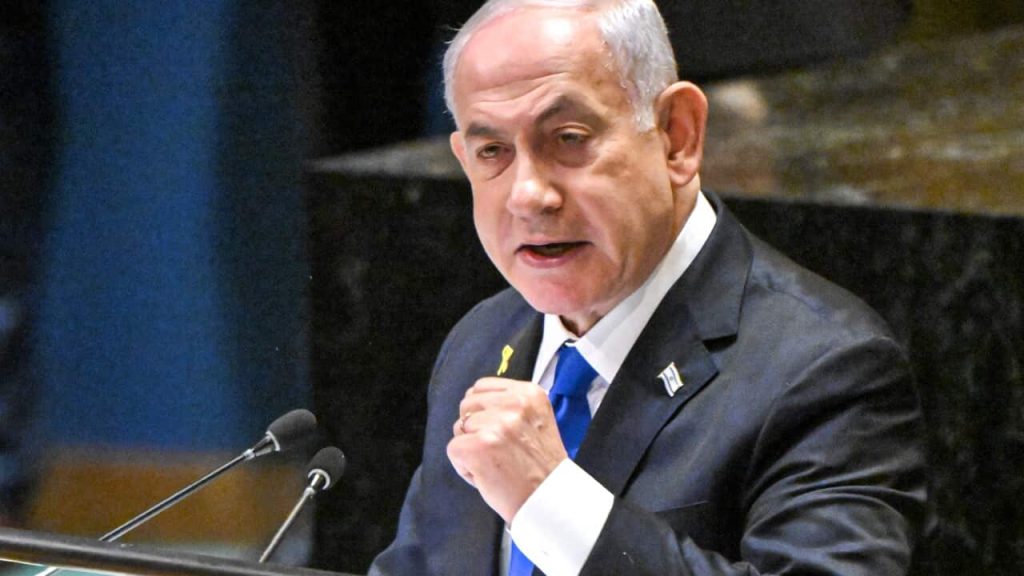Israeli Prime Minister Benjamin Netanyahu Approved Pager Attacks Against Hezbollah
Israeli Prime Minister Benjamin Netanyahu approved pager attacks against Hezbollah in September, as confirmed by a spokesperson for his office on Monday.
The Israeli military, engaged in cross-border fighting with Hezbollah since the start of the Gaza war in October 2023, initially declined to respond to questions about the detonations.
On 17 September, thousands of pagers simultaneously exploded in the southern suburbs of Beirut and other Hezbollah strongholds, in most cases after the devices beeped, indicating an incoming message.
A Hezbollah official, speaking anonymously, referred to the incident as the “biggest security breach” for the group in nearly a year of conflict with Israel.
The pager attack, along with a subsequent attack the following day that activated weaponized walkie-talkies, resulted in 39 casualties and more than 3,400 injuries.
Israeli media reported that Netanyahu took responsibility for the attack during a cabinet meeting, despite opposition from senior defense officials and political figures.
Progress in Lebanon Ceasefire Discussions
Israel has indicated progress in talks about a Lebanon ceasefire, suggesting that Russia could play a role in preventing Hezbollah from rearming via Syria. However, Hezbollah claims to have not received any new truce proposals.
Hezbollah, battered by Israel’s offensive, stated that political discussions involving its supporters in Iran, the United States, and Russia were ongoing. The group also declared its readiness for a prolonged conflict, maintaining rocket fire into Israel.
Israeli Foreign Minister Gideon Saar emphasized that the war against Hezbollah was not yet concluded, highlighting the need for enforcement in any potential ceasefire agreement.
Recent remarks indicate a renewed focus on securing a Lebanon truce as President Joe Biden’s term comes to an end, with President-elect Donald Trump poised to take office.
Qatar Pulls Out of Gaza Mediation Talks
Efforts to broker a truce in the Gaza Strip suffered a setback as Qatar suspended its mediation role.
The conflict along the Lebanese-Israeli border, which escalated after the Gaza war, had been ongoing for a year before Israel launched its offensive in late September, conducting airstrikes and deploying troops in southern Lebanon.
Saar mentioned that Israel was collaborating with the US on a potential Lebanon ceasefire, outlining the conditions for Hezbollah to withdraw to the north of the Litani River and prevent rearmament.
Lebanese and Israeli Officials to Meet with Antony Blinken
Israeli Strategic Affairs Minister Ron Dermer was scheduled to meet US Secretary of State Antony Blinken in Washington DC, as confirmed by the State Department.
Reports from Israeli newspapers suggest substantial progress in diplomatic negotiations for a proposed Lebanon ceasefire, which would involve Hezbollah withdrawing north of the Litani River and the Israel Defense Forces returning to the international border.
Conclusion
Prime Minister Benjamin Netanyahu’s approval of pager attacks against Hezbollah marks a significant development in the ongoing conflict between Israel and the militant group. As discussions for a Lebanon ceasefire progress, regional dynamics continue to evolve, with key players like the US and Russia involved in mediation efforts.
FAQs
1. What was the impact of the pager attacks on Hezbollah?
The pager attacks resulted in casualties and injuries, marking a significant security breach for Hezbollah.
2. Who is involved in the negotiations for a Lebanon ceasefire?
Israel, Hezbollah, and mediators like the US and Russia are engaged in discussions to secure a truce in Lebanon.

